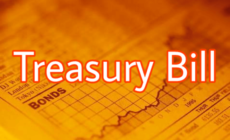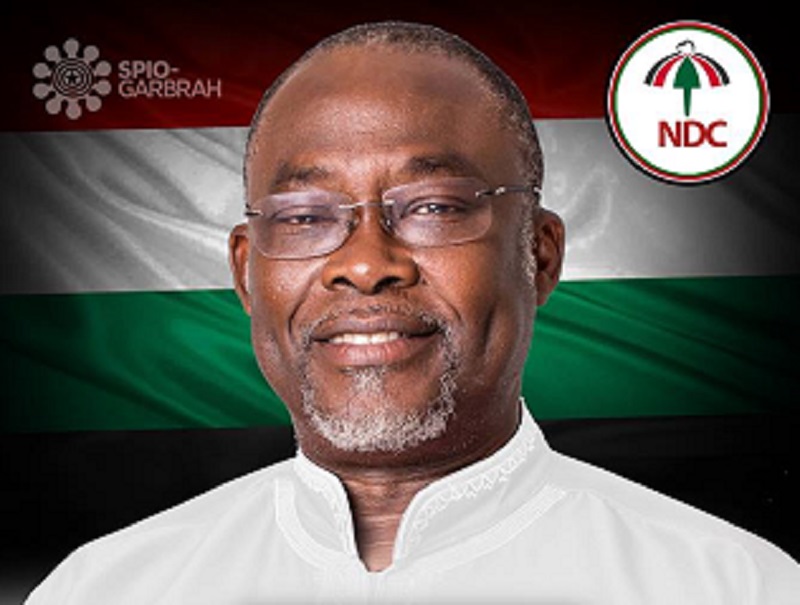Individuals and businesses, especially small and medium enterprises (SMEs), are paying between 28 and 35 per cent interest on the loans they receive from the universal banks, while savings and loans companies charge between 45 and 120 per cent a year on the loans they grant to SMEs.
Dr Spio-Garbrah, who invited trade associations and the public to join him in the war, said it was unacceptable for interest rates to remain predominantly high in the country for over a decade, although economic fundamentals had been changing favourably.
He said it should be possible for the Bank of Ghana (BoG) to use incentives to entice banks to make lending cheaper.
The meeting
Dr Spio-Garbrah made the call at the Graphic Business/Fidelity Bank Breakfast Meeting on: “The Role of Small and Medium Enterprises (SMEs) in Ghana’s Economic Development” in Accra yesterday.
The meeting brought together all stakeholders in the SME sector to dialogue on how that sector could contribute to economic development.
Dr Spio-Garbrah said informal discussions had already started with some stakeholders to reach formal crescendo around January 2015.
“We will have a discussion with all stakeholders — the government, the central bank, borrowers through trade associations such as the Association of Ghana Industries (AGI), the financial services industry and consumer groups.
“We will have a roundtable conference to identify what has gone wrong and how we can go round the challenges,” Dr Spio-Garbrah said.
Caution
However,a banking consultant, Nana Otuo-Acheampong, and the Managing Director of ProCredit Ghana Limited, Ms Sarah Tsien Zetterli, quickly cautioned that the action should start with the government, which borrowed more from the banking sector through treasury bills and was also in charge of creating an enabling environment for businesses to thrive.
Dr Spio-Garbrah admitted that government borrowing and over-borrowing, as well as policy rate decisions by the central bank through its Monetary Policy Committee (MPC), were also part of the challenge.
But the minister, who also wants to pay more attention to the industrial sector during his tenure, said the reasons for the sticky rates went beyond those two arms.
He queried the justification for the paltry interest banks offered on deposits they kept and yet “if you want to borrow from the same bank, it charges you exorbitant interest rates. The spread is too wide”.
Banks and low savings
That, he said, affected the level of savings in the economy, one of the lowest in the West African sub-region.
Ghana’s savings rate is about 9.44 per cent when expressed in terms of the total value of goods and services produced within the economy.
“Most people do not save because they fear their money will depreciate. When inflation is hovering around 16.9 per cent and savings give you six per cent, there is no point saving.
“So interest on savings can also be adjusted by a bank for others to follow. We cannot have about 28 banks in the country which more or less have the same interest on savings. Then where is the competition?” he asked.
The high interest regime in the economy has negatively affected lending by banks over the last year.
Growth of loans and advances in the banking industry slowed down between the end of 2012 and the end of 2013, according to a PwC report.
Compared to the 41 per cent increase in industry loans and advances of GH¢12.82 billion at the end of 2012, there was only 31 per cent growth in industry loans to GH¢16.85 billion.
This sticky credit regime increased the cash that the banks held by 16 per cent from GH¢6.27 billion in 2012 to GH¢7.24 billion in 2013.
That worked in favour of investment holdings in money market instruments, as liquid assets increased by 47 per cent from GH¢7.28 billion in 2012 to GH¢10.72 billion in 2013.
Mr Spio-Garbrah also stressed that the zero interest rate on savings in foreign currency was not helping to attract funds from even Ghanaians in the Diaspora who were desirous of saving back home, while at the same time the country paid 8.5 per cent coupon rate on its Eurobond.
“Therefore, if it was a BoG regulation that is creating the challenge, we all have to sit down and deal with it,” Mr Spio-Garbrah said.
The war on interest rates is not the first in the country, as a former minister, Mr Hackman Owusu-Agyeman; the industrialist and economist, Mr Tony Oteng-Gyasi, and others have been calling for the closing of the interest rate spread, while bringing down the prices of loans.
However, the latest action comes at a time when the MPC of the BoG has just increased the policy rate by about 200 basis points from 19 per cent to 21 per cent, in what the BoG says will help arrest the inflationary pressures and jitters in the economy, especially, as the Yuletide approaches.
This adjustment is likely to lead to increases in the base rate by banks, which will eventually lead to high interest rates paid by individuals and businesses.
Way forward
For Nana Otuo-Acheampong, although the minister’s intentions were welcome, the government needed to take the lead in reducing its borrowing from the market in order to drive down the benchmark rates, which would also inform a policy rate reduction.
For her part, Ms Zetterli said much as the lending rate was linked to the policy rate and government borrowing, risk within the SME sector was a contributor which must be faced head on.
“The government has a role to play; we need light! It has to help SMEs, which are the clients of the financial institutions, by creating the enabling environment by providing reliable access to electricity and fair tax policies, while import laws must be fair to our clients, the SMEs”, she said.
She said when “the businesses succeeded, they would pay their loans. For the SMEs, they should be open and transparent with the banks which would grow with them.”
Reacting to an earlier statement by the Trade and Industry Minister that the government would declare a war on high interest rates in the country, the Deputy Managing Director of Fidelity Bank, Mr Jim Baiden, said instead of taking unilateral decisions on the matter, the government should rather collaborate with the BoG to find solutions to rising inflation and interest rates.
“Achieving low interest rates can be done. The government manages the fiscal policy and the BoG manages the monetary policy. So if the government will do its bit to bring down inflation and the BoG does same, then interest rates will obviously go down,” he explained.
Mr Baiden advised that businesses should, in the meantime, borrow from banks that offered the lowest interest rates, so as to be insulated from the overall wrath of the current tight interest rate regime.
Do not blame banks
Expressing disagreement with suggestions that banks were arbitrarily charging high interest rates, to the detriment of businesses, Mr Baiden explained that the prevailing cost of funds in the country was a reflection of the macroeconomic environment.
The rates are currently averaging 30 per cent per annum in the banking sector and 25 per cent per month in the non-bank financial services.
He said even though the rates were high for business growth in the country, the situation could be better if inflation and the policy rate, which had risen to 21 per cent, were lower.
The policy rate — the cost at which the central bank lends to financial institutions — was set at 19 per cent in June this year but went up to 21 per cent after the MPC’s third quarter review of activities in the economy yesterday.
Inflation, which measures the rate at which the prices of goods and services increase over a period, also rose to 16.9 per cent in October, something the Fidelity Bank Deputy Managing Director said combined with the policy rate to push interest rates up.
Once the policy rate was high, Mr Baiden said, the banks’ cost of borrowing from the BoG would automatically rise and that would cause them to pass on the additional cost to businesses.
“Banks do not set interest rates by themselves; we take a cue from the policy rate, which is set by the BoG. Therefore, if the prime rate is going up, there is nothing we can do — banks cannot lend going down on rates when the policy rate is up; we move in tandem with the direction of the policy rate,” Mr Baiden, who has been in the banking industry for over 20 years, said.











 (Selorm) |
(Selorm) |  (Nana Kwesi)
(Nana Kwesi)